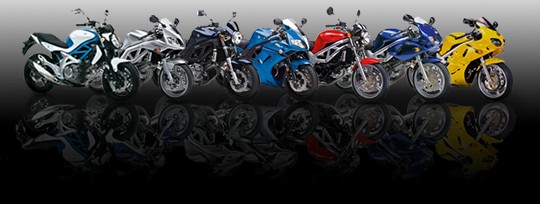 |
 |
|
|
#71 | ||
|
Member
Mega Poster
Join Date: Jan 2004
Location: Whyteleafe
Posts: 3,395
|
Quote:
Just bear in mind we are trying to compare like with like. So i'm comparing something like a large capacity torquey petrol engine with a diesel here. If you produce a petrol engine with the torque characteristics of a diesel i would expect the engine braking to be massive.[
__________________
Silver SV650SK3, Fuel exhaust |
||
|
|

|
|
|
#72 |
|
Member
Mega Poster
Join Date: Jan 2004
Location: Whyteleafe
Posts: 3,395
|
anyway Skidmarx has answered all the questions i had in his excellent post above. I really can't be bothered with this thread anymore as engine theory always seems to induce a lot of b*llo*x from ppl.
Bye
__________________
Silver SV650SK3, Fuel exhaust |
|
|

|
|
|
#73 |
|
Guest
Posts: n/a
|
|

|
|
|
#74 | |
|
Guest
Posts: n/a
|
Quote:
Shorten the stroke = a lower rpm maximum no offence but when i pick myself of the floor and stop laughing i might inject some sense into the conversation so what your saying is that a boat with a 40 foot stroke has an rpm of 10.000.000 wow interesting concept and there i was thingking the max rpm of a boat was about 800 bore x stroke does in fact determine the max rpm of an engine and its when the engine goes under square the the rpm will raise by under squre i mean bore = 50 stroke = 49 for instance if you go oversquare longer stroke this will infact turn the bike into what is commonly known as a thumper longer stroked engines vs bore size are more plodders than thrashers a typical race engine in a car will have a smaller stroke than piston diameter in order to reach high end rpms bike do tend to follow a similar format take the motorcrossers and thumpers of the tracks end of rant |
|

|
|
|
#75 |
|
Member
Mega Poster
Join Date: Jan 2004
Location: Whyteleafe
Posts: 3,395
|
i thought the terms over and under square were used the other way round. Anyway - aren't you both saying that a shorter stroke will increase revs? He said it will reduce the piston speed - which it will. Or alternatively keep max piston speed the same and increase the revs.
And wasn't I gonna butt out of this thread?
__________________
Silver SV650SK3, Fuel exhaust |
|
|

|
|
|
#76 |
|
Guest
Posts: n/a
|
sorry barty boy.....I think I'm right! Short stroke refers to the throw of the con rod. The crucial thing here is the piston speed. This does depend of the length of the stroke honest....
|

|
|
|
#77 |
|
Guest
Posts: n/a
|
Oh and I'm with ophic on his appraisal of the situation so far
|

|
|
|
#78 | |
|
Guest
Posts: n/a
|
Quote:
a short throw conrod and a square configuration will produce a higher rpm and there fore piston speed than a long throw rod engine of the same cc sorry but that how it works on real engines |
|

|
|
|
#79 |
|
Guest
Posts: n/a
|
It goes without saying that piston speed directly relates to rpm. However, that's not the whole story. Take 2 engines both say....650 cc? One long stroke, ie small bore but a longer throw on the crank, and the other 'over square' with a large bore and short throw of the crank. In your world for any given rpm, the piston speed would be the same...but alas no...The long throw engine would have a significantly higher maximum piston speed! The piston speed is not constant through the stroke, but rather varies sinusoidily according to theangle of the crank. Think of it this way, in a long stroke engine the piston has further to go in a given time than with a short stroke engine.
|

|
|
|
#80 |
|
Guest
Posts: n/a
|
yes i understand exactly what you are saying there but you are saying that a long stroked engine will have a higher rpm max which is wrong it wont
your getting into an inertia debate now which is different or was that what you were trying to get at before ?????? |

|
 |
|
|
 Similar Threads
Similar Threads
|
||||
| Thread | Thread Starter | Forum | Replies | Last Post |
| Engine Breaking? Hopefully not. Engine braking - is that OK? | butterick99 | SV Talk, Tuning & Tweaking | 14 | 12-09-09 10:31 PM |
| Engine braking... any hazzards engine wise? | John 675 | SV Talk, Tuning & Tweaking | 21 | 28-03-08 07:20 PM |
| Engine braking | Lakes_Puma | SV Talk, Tuning & Tweaking | 18 | 02-06-07 02:30 PM |
| engine braking on the sv! | kwak zzr | SV Talk, Tuning & Tweaking | 11 | 25-04-06 12:01 PM |
| Braking an engine | svrash | For Sale - SV's and SV related items | 1 | 22-03-06 10:43 AM |